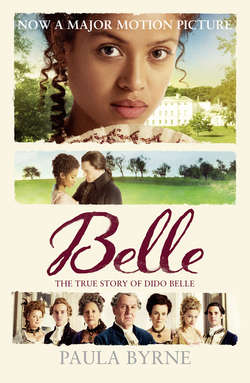Читать книгу Belle: The True Story of Dido Belle - Paula Byrne - Страница 20
ОглавлениеWilliam Murray was born on 2 March 1705, at Scone Abbey in Perthshire, Scotland. He was the fourth son of the fifth Viscount of Stormont and his wife Margaret, and one of fourteen children. Though he was born to Scottish nobility, it was an impoverished line, and he was forced to make his way in the world by his intelligence and hard work. He attended Perth Grammar School, where he mixed with boys from different social backgrounds and was taught Latin, English grammar and essay-writing skills. He later said that this gave him a great advantage at university, as those students educated in England had been taught Greek and Latin, but not how to write properly in English. When he was eight his parents moved away, and left him and his younger brother Charles in the care of his headmaster.1
In 1715, when William was in his tenth year, the recently formed political union between Scotland and England was shaken by the first ‘Jacobite’ rising, otherwise known as the ‘Fifteen’. This was an attempt, led from Scotland, to overthrow the newly installed Hanoverian King George I and restore the Stuart monarchical line that had come to an ignominious end with the deposition of King James II in 1688. Perceived to be returning the country to Catholicism, James was deposed and exiled when a group of powerful Protestant aristocrats invited William of Orange to come to England with an army. The Dutch invasion came to be known by Parliament as the ‘Glorious Revolution’; among its consequences were a strengthening of Protestantism, Whig supremacy and a limitation of royal powers. The Jacobites took their name from the Latinised form of ‘James’, and their ambition was to bring back ‘the king over the water’, James II’s eldest son, James Francis Edward Stuart, who became known as ‘the Old Pretender’. His son, ‘Bonnie Prince Charlie’ or ‘the Young Pretender’, would lead another, more substantial, Jacobite rising thirty years later, in 1745. Both would end in military defeat. Scottish nationalistic resentment over the union and English suspicion of Jacobite tendencies were unavoidable contexts for the lives of families such as the Murrays, which had to make a choice between Scotland and England, Edinburgh and London.
On 15 March 1718, young William Murray set off for London on horseback to take up a place at Westminster School, where he hoped to win a scholarship. He was just thirteen. He stopped at Gretna Green for an overnight stay, then continued south despite problems with his horse, which fell lame in the first leg of the journey, meaning he had to walk part of the way. The distance from Perth to London by road is over four hundred miles. To have completed this trip was a mark of Murray’s tenacity and determination, and a testament to his great energy, which would be remarked upon throughout his life.
He never saw Scotland again.2 It was apropos Murray, by then Lord Mansfield, that Dr Johnson remarked to James Boswell, ‘Much may be made of a Scotchman, if he be caught young.’3 Not a single letter survives from Murray to his parents, and it seems unlikely that he kept in contact with any of his siblings.4 For some of his critics, he was distancing himself from unsavoury Jacobite connections. His father openly supported James Stuart, as did several of his siblings, including his brother James, who was secretary of the Old Pretender’s court in exile in France.
